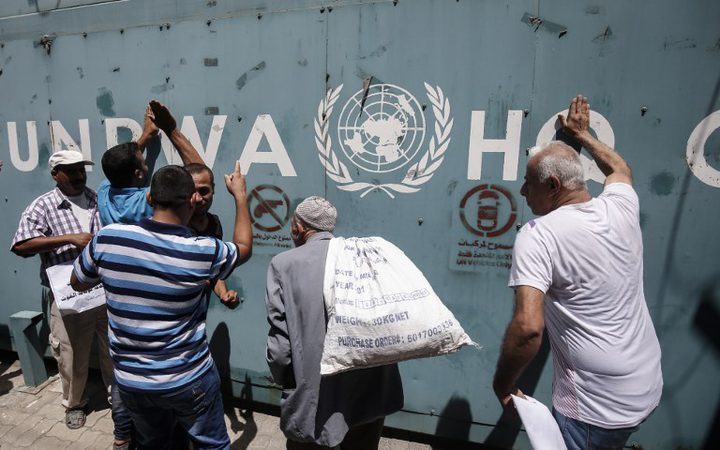An-Najah News - UNRWA Commissioner-General Philippe Lazzarini engaged the Advisory Commission members on the risks associated with the inability of UNRWA to pay salaries to over 28,000 staff if sufficient funding does not reach the Agency immediately that cam in virtually meeting by videoconferencing on 23-24 November amidst immense concern over the financial shortfall that the Agency is facing.
He urgently called on the Agency’s advisory body to help him ensure that basic services to 5.7 million Palestine refugees continue in the West Bank, including East Jerusalem, Gaza, Syria, Jordan, and Lebanon, particularly as a global health pandemic continues to affect the most vulnerable people globally.
“As of today, I do not yet have sufficient funds to pay November salaries to the UNRWA staff who are at the frontlines of the COVID-19 pandemic,” said Lazzarini.
He added “Our relentless health, education, social and sanitation workers, and many others have shown massive commitment and solidarity with Palestine refugees.
Most of our staff come from the same community and face similar health and other challenges.
For them, I urge the international community to step up its support to UNRWA immediately.”
Participants reiterated their support to UNRWA and were eager to engage with the Agency on ways to avoid the recurrent financial crises.
UNRWA has just secured a loan of $20 million from the Central Emergency Relief Fund (CERF), which will help with cash flow and will cover part of the November payroll but will add additional financial liabilities to the Agency in 2021.
Several recent additional contributions will help reduce an immediate funding gap of $114 million, but the funds available today are nowhere near the funds needed to cover salaries in full for November and December.
“This is the first time in memory that UNRWA has reached the cliff’s edge with no money on hand nor confirmed pledges to cover two months of salaries,” said the UNRWA Commissioner-General.
UNRWA received this year the lowest level of contributions since 2012, at a time when the needs of refugees are compounded by the effects of the pandemic on their meager resources.






